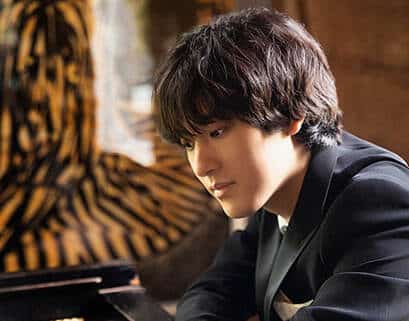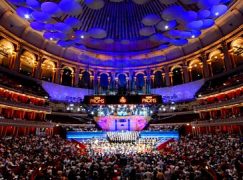Fending off the battering rams
mainIn its endless quest for harmony and balance, the BBC put me between the hip-hop artist Tor and the former Hear’Say singer Myleene to discuss the pop-ularisation of classical music, in front of an audience made up mostly of radio production staff.
My role, I discovered, was to be the patsy. Tor and Myleene want old music to get real. Tor told of her great day out as soloist with the BBC Concert Orchestras; she wondered why the symphony bands weren’t doing more hip-hop (perhaps because that’s not what they are trained for).
Myleene, a former member of the Hear’Say pop group, kept banging on about young people (she is 29) having no patience for long pieces; the only way they will respond to classics is in short bits, and why can’t the BBC and people like me come towards them?
We batted inconsequentialities to and fro for a bit until I lost patience and demanded to know why classical, alone among all musical forms, is being urged to reform. I hear no demands for clubs to employ string quartets and rock stations to play sonatas. No-one’s telling P Diddy to put an ‘oud in his act.
I listen to and enjoy most musical genres; what I can’t accept is that one single form is being victimised on spurious grounds of elitism, exclusivism and aloofness.
Classical music, I raged on, is a museum culture. Museums are thriving with record attendance numbers and no concession to fashion (except the Victoria and Albert, which displays Kylie Minogue’s nightwear). Museums are where we find our common human roots. There is a desperate need to conserve these fortesses of civilisation from the battering rams of ephemeral fads. That’s what great art is there for, take it or leave it.
My hip-hop neighbour nodded sagely (I will definitely catch one of her gigs), and the session ended before popster Myleene could formulate a comeback. Was anything achieved? You tell me.
Meanwhile, Myleene’s battering ram has breached the walls of EMI Classics … read on.





This has been going on for a long time: Pop people claim that all music should sound exactly like their music, and then they bash classical music for being “narrow” and “elite.” What they’re really saying is they resent classical music being different from the music they like to hear, but they have to couch it as the opposite sentiment in order to appear liberal and open-minded.
To define classical music as a ‘museum culture’ is to insist that it is, and always was, dead. A museum holds those relics of cultures past that have avoided oblivion through some combination of value, infamy, and luck. These objects did not establish their cultural significance by being put in a museum; they were put in a museum because they are culturally significant. So it is with classical music. One cannot sift out the ephemera except in retrospect, and enforcing this false barrier between ‘classical music’ and contemporary music is the best way to ensure that nothing arising out of the classical music tradition will ever again be relevant to a culture.
From here, Beethoven quickly becomes as foreign to us as Josquin, until the entire tradition is nothing more than an intricate curiosity of the distant past, with a few tunes such as the Ode to Joy and Eine Kleine Nachtmusik joining London Bridge and Greensleeves as apocryphal cultural continuities through the centuries.
Defining classical music in such a way is an unnecessary act of euthanasia. If one is so inclined, why bother worrying about it? But it isn’t the only way.
Hip-hop is not just some monolithic unimaginative corporate ephemera that is threatening to push the mausoleum of classical music into irrelevance. It too has roots, traditions, influences, innovations, and appropriations. I’m sure that if you looked a little harder, you’d find ‘ouds, string quartets, reimaginings of the Kreutzer sonata, not to mention jinghus, tablas, Baudelaire poems, and even Josquin inside the world of hip-hop; and behind these things, artists who truly believe that their work will one day be a famous relic–a part of a future ‘museum culture’. In order to be a relic tomorrow, though, one must be relevant today, and so one must evolve.
Indeed, it’s not that classical music is alone being urged to reform, but that classical music alone insists that it need not.
NL responds:
Very interesting argument. But can someone show me a government initiative anywhere that is demanding reforms in traditional folk music, or jazz, or any other form. As far as I can tell, classics are the only genre under such pressure, mostly due to a perverse form of counter-elitist ploitical correctness.